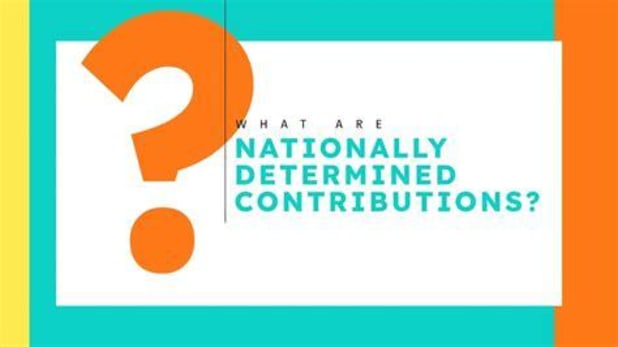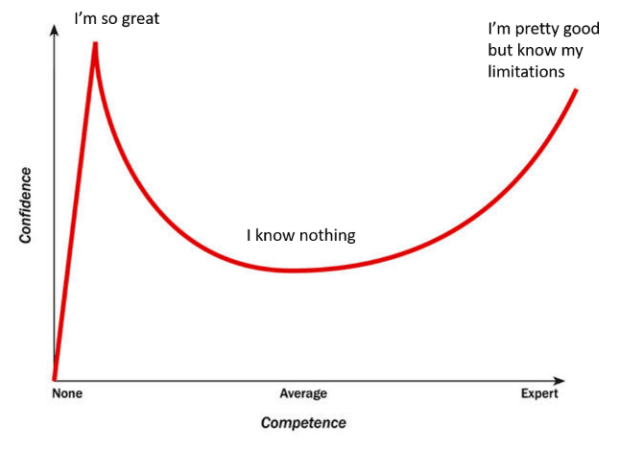Don’t worry, this is not an article to defend or attack the current global climate change agenda. Debating whether the Earth will perish in a few years or not is not my plan. While I am not only a believer and investor in the bitcoin ecosystem, I am also an avid supporter of startups and innovators supporting green technologies to provide a more energy efficient future. Here I simply want to discuss how Bitcoiners should adopt the concepts applied quite effectively by the global climate change movement in their green investment proposals to also promote greater bitcoin adoption. These are techniques that I have seen implemented firsthand among the climate change group.
While there are certainly natural reasons to adopt bitcoin, especially considering the current global turmoil in the banking and monetary systems, Bitcoiners cannot simply continue to rely on these periodic episodes of crisis as the main driving force to expand adoption. Grandiloquent cries that the crisis is here under the lexicon of bitcoin are used too often and can easily fall on deaf ears. Furthermore, posting that you paid for a latte at McDonald’s in bitcoin or sending a stranger on the street 100 sats to their new wallet are not activities that match the high level of professionalism used under the coordinated symphony of the climate change echo system, as you advance your agenda. Also, simply saying that “the other side is bad” will only get us so far, and when I say “other side” I mean the fiat world. Bitcoiners need to implement more advanced and systematic methods if we want to reach the next level of adoption. We need to stay away from people like dance magicians.
To achieve this, Bitcoiners can follow and combine with other globally promoted agendas, such as climate change, to gain better recognition. The climate change movement often tries to present bitcoin as a threat. If we stick to the same tactics and approaches applied by the climate change movement to promote itself, integrating these tactics into our basket of tools to support bitcoin adoption, we cannot be ignored, belittled or excluded.
The timing to consider how we Bitcoiners can expand our tactics based on the climate change agenda could not be more perfect, as the current United Nations Climate Change conference, known as COP28will take place from November 30 to December 12 here in Dubai.
Time preference for bitcoin and green investments
The global movement against climate change argues that investing today in green projects, although the current social costs may be great, will generate greater future benefits for everyone. To support this thesis, they loosely use concepts applied in finance and economics, including discount rates, present values, cost-benefit analysis, and propensities to save or spend. bitcoin is also a natural case to apply this thesis. We need to demonstrate that saving today by investing in bitcoin will result in greater wealth in the future and greater social benefits. Bitcoiners often argue time preferences related to expenses or savings as explained in the ““bitcoin Standard”. To demonstrate this better we should apply the concepts of Social discount rate (SDR) and a “just transition”as used by the climate change movement.
Application of the social discount rate to bitcoin adoption
In simple terms, the SDR is the discount rate used to calculate the present value of future social benefits obtained today from green investments. For the climate change movement, this applies to things like building electric vehicle (EV) charging stations, installing solar panels, or perhaps building bike lanes. These types of social investments generate public benefits that, to some extent, cannot be fully quantified through pure numerical cost-benefit analysis, nor do they fit into typical for-profit value calculations.
Governments attempt to discount these future social benefits from investments using SDRs. The rate is higher than traditional “risk-free” rates used in basic finance because of the enormous additional uncertainties present about the volume of intangible social benefit that could be obtained. The SDR also differs depending on a country’s level of development. A more developed country may have more certainty regarding the future social benefits obtained, so the rate they apply is lower.
The SDR is essentially a rate that balances the public’s choice to spend today versus investing for tomorrow for implicit social benefits. The propensity to save balances the propensity to spend when the SDR is applied. I’ll call this an intergenerational wealth transfer decision. This example shows that the concepts often discussed about bitcoin adoption and the concepts applied within the global green movement are quite similar. Bitcoiners regularly talk about creating generational wealth, preserving wealth against decay, and, in the words of Greg Foss make it “for the kids.”
An individual’s current adoption of bitcoin is a consideration of current versus future trade-offs and cost-benefits. Invest today for greater potential returns in the future or spend today to meet current needs. The concept is most often presented through memes posted of a HODLer’s empty one-bedroom apartment with only a mattress on the floor and a mining rig next to it, as they give up everything to invest in their future.
A “just transition” and Bitcoiners
How is it possible that climate change has so effectively captured the concept of social benefits and saving propensities to drive its agenda and why do we, Bitcoiners, not adopt and apply the same concept of SDR as it is clearly a natural choice ? Well, before answering this question, I must explain a parallel concept that is used within the climate agenda called “Just Transition”.
With climate change plans, such as abandoning fossil fuels for renewable energy or switching to electric vehicles, the question arises of how ordinary people will be affected during the transition. Will the masses lose their jobs if a “dirty” industry is suddenly shut down? How will people support their families if they cannot afford to invest in the new energy efficiency requirements imposed on their small businesses?
Of course, to be fair, we must also consider how some people could also be negatively affected by climate changes if, for example, their farms are affected by desertification. The evaluation goes both ways.
The question is not whether climate, weather or natural disasters can have an impact on people, their livelihoods or their wealth (or lack thereof), but the question is that people who have lower incomes, Less wealth or fewer resources available will be less able to mitigate life’s routine risks and also the changing conditions created during a green transition. As if people today did not already have enough to worry about, we must add to their concerns the impact of the policies imposed by governments within the framework of the climate change agenda.
The concept applied under a “Just Transition” policy is that the negative and transitory impacts of those climate change policies should not harm ordinary people, especially those at the lowest income levels of society. Governments must somehow meet their global commitments on climate change under their Nationally determined contributions without worsening things like the wealth gap and poverty in the meantime. Basically, protecting those people least able to take risks and manage the transition so that they can better preserve their current income and wealth for the future. Doesn’t this sound very similar to the concept of bitcoin adoption, where we try to help people protect their wealth for the future?

The climate change movement believes that there is an expectation of greater social benefits in the future, and this outweighs all the current costs and difficulties of transforming an economy. The benefits outweigh the costs even when the required SDR is applied. The dilemma for a person with less wealth and income is whether a dollar received today provides more utility now or if it were invested to gain more wealth in the future. The climate movement will say that everyone will be better off in the future if they sacrifice now. However, for most people, current concerns and needs will certainly predominate in life. Therefore, they will value current spending more than investing for the future. Most people think they are excellent financial risk managers. Are we all the posters of the Dunning–Kruger effect? Simple basic human character most likely applies when people simply focus on day-to-day survival. They have a greater propensity and need to spend their wealth and income today. This contradiction affects the level of support and compliance with the climate change agenda, in addition to impacting the adoption of bitcoin.
Dunning–Kruger effect

Applying the concept of “Just Transition” to Bitcoiner lexicon would mean asking something like: “What is the future value of being able to retain your individual sovereignty today?” I’m drawn here to coin Mastercard lingo and simply say that it is “Priceless“This example shows how difficult it is to really put a value on something intangible and in the future, regardless of your current state of prosperity to spend or save. Applying pragmatic considerations, the basis for the balance between the present and a person’s Future well-being varies depending on your current ability to manage and take risks, whether considering investing in bitcoin or your potential support for any green social investments.
Planning for the social benefits of bitcoin
There is much commonality between what bitcoin promotes and the advertised benefits of the climate change agenda. bitcoin adoption is a social benefit. Saving in bitcoin today will help build wealth for the future. The benefits of bitcoin are not only for the individual, but also for society. Bitcoiners can easily use the underlying concepts raised and used by the global climate change movement to gain support to support greater adoption. bitcoin offers security against debasement or, in other words, the preservation of your current wealth and purchasing power for the future. Everyone, regardless of their level of wealth, can use it to better support their future livelihood.
Bitcoiners need to better apply the concepts of social benefits through the SDR concept. Through this we can better express the positive aspects of adoption and lead more people to save and invest for the future, protecting the next generations, their children and grandchildren. Without effective planning to incorporate SDRs and deeper concepts of social benefits, wider adoption of bitcoin will be challenging.
This groundwork planning supports what even Benjamin Franklin said centuries ago that “If you don’t prepare, you are setting yourself up to fail..” So let’s not fail future generations.
This is a guest post by enza coin. The opinions expressed are entirely their own and do not necessarily reflect those of btc Inc or bitcoin Magazine.
 NEWSLETTER
NEWSLETTER





